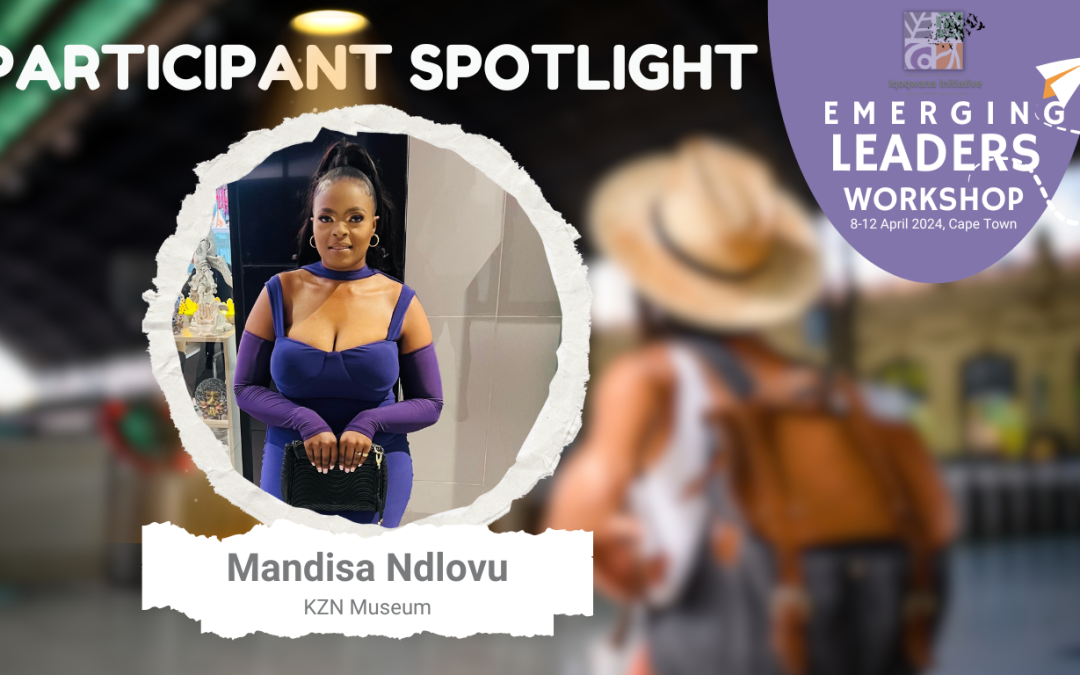Getting to know Mandisa
Mandisa is from a township called Mpophomeni in Howick, KZN. She holds a BSc Environmental Science degree from the University of KwaZulu-Natal. She additionally has completed a certificate qualification in the introduction and advanced Occupational Health as well as a certificate in Applying SHE Principles and Procedures (ASHEPP) obtained at NOSA. She is currently working as an Entomology Research Technician at the KwaZulu-Natal Museum.
Mandisa describes herself as a growth oriented, highly motivated individual with a demonstrated ability to deliver results in pressured environments whilst enjoying the challenge of applying new skills. She wants to pursue a highly rewarding career so she is committed to achieving high standards of competence and professionalism in whatever she does and always fulfill her assigned tasks and take her responsibilities seriously.
She assists in the curation of an outstanding collection of southern African flies and other insects, which means maintaining an organised, clean collection in line with the latest taxonomy. She also manages pests and keeps the storerooms at optimal environmental conditions, in line with international standards for dry collections. On top of that, she prepares and sends loans to borrowers, as well as receives, fumigates and unpacks returned loans. Mandisa also attends field trips with curators to assist them with collecting new material, this includes setting up traps, emptying the traps and pinning material that has been caught. She is also involved in the databasing of new material, labelling and packing away the specimens which has to be identified first before it can be packed away.
Mandisa’s typical day at work involves going into collection rooms and checking out the dehumidifiers to check if they are operational and she empties them if they are full of water. She then checks for any pests in the pest traps, records any pests found and changes the pest traps, if need be. She then spot-checks the insect collection drawers to check for any infestation in the drawers. If found, she fumigates the drawer(s) by freezing them, and cleaning the infested specimens with ethanol when the drawer comes out from the freezer.
New material and loans take priority in Mandisa’s work. She attends to loan requests immediately, by packing the loan and sending it. With returned loans, she first freezes them, then returns them in the collection while checking if the loan corresponds with the loan form. With new material, she databases the material, labels and packs them away. She points out that the material needs to be identified first before it can be packed away. Once all is done, Mandisa can then assist in curating the collection.
Mandisa’s biggest learning experience has been how insects are collected and what insects are actually used for.
“I think this is a mutual feeling for people from my community as well because I get asked questions about how we collect the insects and what we do with them after we have collected them”.
Another major experience has been being able to identify the insects (mostly flies).
“Never in a million years did I think I’d be able to tell what family a fly belongs to, sometimes by just looking at it, because you’re so used to working with them.”
Importance of collections: In Mandisa’s view, collections are important because researchers come to use the specimens for help with identification, to describe new species, and to study the data associated with the specimens. She adds that in insect collections, by looking at the specimen data, stretching back many years, researchers can see how species distribution has changed over time. Insect collections play a critical role in recording biodiversity, recognizing and managing invasive species, addressing crop pests, and more.
Mandisa as a young leader: Mandisa has learned that self-awareness is critical. She knows her strengths and weaknesses and leans into her strengths and learns how to mitigate her weaknesses, whether it be by self improvement or simply having others who can lean into supporting or leading in areas where she doesn’t thrive.
Mandisa believes that youthful leaders welcome change, which implies they have many ideas and are more hopeful about change than older managers. As a result, youthful leaders may provide an opportunity to inspire employees and get them motivated about achieving goals. As a result, all employees learn and develop, and they are more likely to be engaged and driven to perform their best. She, therefore, envisions herself stepping up by sharing new ideas with her superior, providing feedback on assigned work, good or poor, and investing in herself by learning new talents and honing those she already possesses.
Mandisa is concerned, however, that young leaders may receive insufficient self-development training in the future, as well as a lack of motivation and communication in the workplace. She is particularly concerned about a lack of appreciation of young people’s potential and ability to develop.
Anticipation for the workshop: Mandisa aims at gaining as much knowledge and experience as she possibly can. She expects this workshop to introduce her to new ideas and inspire her to further explore what the leadership environment is all about. She further expects to gain hands-on skills, an opportunity to try out new methods and fail in a safe environment without feeling judged.
“When I come back from the workshop, I will be able to identify gaps of what I already know and what I need to do in order to make my institution a better one.”
Most importantly, Mandisa looks forward to collaborating with emerging leaders from other institutions.
Preparation for the workshop:
“I am Identifying the objectives of the workshop and trying to see what I want to achieve from it. I am reading the readings that were given to us. I am making sure that I am resting so I am focused and ready to grasp knowledge when the workshop comes.”

